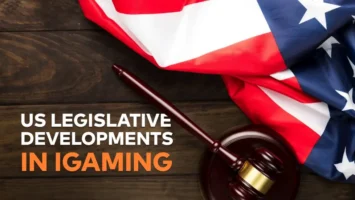Videoslots regulatory fines in Sweden spark debate on duty of care in iGaming

Videoslots regulatory fines in Sweden have become a pivotal talking point within the European iGaming sector. With the Swedish Gambling Authority (Spelinspektionen) levying a substantial SEK 12 million ($1.3 million, €1.1 million, or £942,670) penalty for persistent failings in responsible gambling protocols, the wider digital gambling landscape is coming under renewed scrutiny. For both industry professionals and casual readers curious about the interplay between technology, consumer welfare, and regulation, this episode is more than a news item; it’s a window into the evolving dynamics shaping the future of online gaming.
The background to the fine
Spelinspektionen’s decision stems from a spring 2024 investigation into Videoslots, following routine supervision of its commercial online gaming operations in Sweden. The regulator analyzed the activity of twelve selected players whose betting patterns demonstrated clear risks. These included marathon gaming sessions, rapid-fire deposits, and significant financial losses—one customer, for instance, deposited on 28 separate occasions in one day, while another staked over SEK 4 million in a single month.
Central to the Swedish authority’s findings was the operator’s failure to act swiftly or decisively in the face of these red flags. While Videoslots sent pop-up messages, emails, and attempted care calls to some high-risk players, these interventions were deemed insufficient and untimely. For three months, the company’s safeguards allowed at-risk users—five of whom were aged 18 to 24—to continue betting and incurring steep losses before any meaningful restrictions were attempted.
Regulatory context and the duty of care
The fine was imposed under Chapter 14, Section 1 of the Swedish Gambling Act, which enshrines a clear duty of care on licensed operators to monitor risky behavior and proactively prevent excessive gambling. Regulatory guidance, particularly in Sweden’s tightly managed market, expects companies to combine automated alerts with hands-on interventions. Sweden is not alone in this—many mature iGaming jurisdictions are increasingly leveraging duty of care as a benchmark for compliance.
For Spelinspektionen, the fact that Videoslots’ shortcomings were “systematic” and “passive” marked an aggravating factor. The authority stressed that, especially for young adults who are statistically more vulnerable, proactive and effective measures are not simply recommended—they are essential.
Videoslots’ response and the industry perspective
Videoslots, which has recently rebranded under the Immense Group umbrella, contests aspects of the ruling and intends to appeal. The operator maintains it has “made significant investments in advanced player protection systems” and that it actively intervenes with at-risk customers, including mandatory net-loss caps for younger users. Videoslots further argues that the regulatory guidance remains ambiguous, particularly regarding the threshold for what constitutes inherently problematic behavior—such as depositing more than SEK 10,000 in a month.
Compounding the debate, the operator cited data protection regulations as a limiting factor, claiming a lack of permission to process personal financial or health data for risk assessment during the review period. Spelinspektionen, however, firmly rejected this, clarifying that Swedish gambling laws take precedence in ensuring player protections are prioritized even when data rules are considered.
Systemic issues and recurring sanctions
The current fine is not an isolated incident. Videoslots previously received a reduced penalty in Sweden for anti-money laundering (AML) breaches, suggesting a sustained challenge in aligning operational systems with Sweden’s high standards for compliance. The recurrence of such sanctions across different regulatory fronts—duty of care and AML—speaks to broader tensions between business operations and rapidly tightening European gambling policies.
For operators holding commercial gaming licenses—like Videoslots and many of its peers—the Swedish market’s strictness serves as both a risk and an impetus for modernization. The ability to pivot and streamline intervention processes post-investigation, as Videoslots has started doing, may not only decide a company’s legal standing but also its brand credibility with Swedish players.
Wider implications for the iGaming landscape
The Videoslots episode is emblematic of a broader regulatory shift being witnessed across the iGaming sector. First, regulators are becoming more data-driven, with a willingness to deep-dive into individual player journeys rather than merely auditing aggregate statistics. Second, there is a growing intolerance for anything less than immediate, targeted action when risk factors are detected. The failure to promptly intervene is now framed not only as a compliance issue but as a matter potentially causing direct player harm.
These trends carry far-reaching implications:
- Operators are under mounting pressure to fine-tune their responsible gaming tech, ensuring that automated tools trigger meaningful human follow-ups,
- There is an escalating focus on vulnerable segments of the population, especially young adults who may require stricter deposit and activity caps,
- Ambiguity in legal frameworks is quickly becoming a flashpoint, with operators and authorities increasingly engaging in high-stakes legal appeals and public debate.
In practical terms, every iGaming platform seeking to retain its Swedish license—and, by extension, access to one of Europe’s most lucrative digital gambling markets—must treat compliance as a dynamic commitment, not a box-ticking exercise.
Balancing innovation, business, and consumer protection
As industry analysts, we recognize that the friction between innovation and regulation is inevitable in a space as fast-moving as iGaming. Technology offers operators the means to monitor and intervene more efficiently than ever before, yet regulatory expectations have grown apace. The Videoslots case brings to light just how narrow that window for error has become and how rapidly a compliance lapse can translate into public penalties and reputational risk.
Similarly, debates over what constitutes fair player monitoring—especially when privacy, operational feasibility, and consumer choice are in play—will continue to shape the next phase of regulatory evolution. Both authorities and operators appear eager to see clearer, more codified expectations that support robust consumer protection while enabling responsible business growth.
Looking ahead—the future for regulated iGaming in Sweden
The Videoslots regulatory fines in Sweden serve as a clear inflection point. The message to the marketplace is unambiguous: responsible gambling is not just a compliance requirement but a core ethical and commercial imperative. Operators that delay intervention or treat RG measures as formalities face not only sizable penalties but severe reputational fallout.
At the same time, this case underscores the need for ongoing dialogue between regulators and the regulated. With further appeals pending and wider debate about the practical interpretation of ‘duty of care,’ it is likely that Swedish rules, enforcement practices, and ultimately market standards will continue to evolve.
The takeaway
The fines imposed on Videoslots are more than headlines—they are signals of an accelerated drive toward sustainable, player-centric online gaming across Sweden and Europe. For those within the industry, keeping pace with this regulatory evolution is not optional; it is essential for corporate survival and consumer trust. For players, it is a reminder that the digital entertainment space is subject to evolving protections designed to keep risks in check without stifling the thrill of play.




















